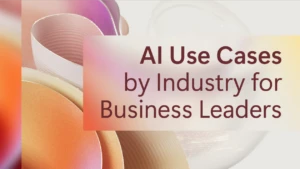Creating opportunity and transforming lives with technology
This week, Microsoft President and Chief Legal Officer Brad Smith was in Washington, D.C., to support the World Bank launch of the 2016 World Development Report (WDR2016). This annual report, published since 1979, examines the economic, social, and environmental state of the world today and offers in-depth analysis and policy recommendations on specific aspects of development. The 2016 report, “Digital Dividends,” focuses on the role that technology plays in global advancement, with particular emphasis on developing countries. Joining other leaders from academia, policy, government, and development, Brad discussed the findings in this year’s report.
According to the WDR2016, the benefits of digital technologies are heavily skewed toward wealthy and influential populations, creating a digital gap between those who have access and those who don’t. The World Bank estimates that four billion people worldwide have no access to the Internet, signifying that 60 percent of the world’s population is excluded from the digital economy and resulting development opportunities.
Brad’s participation in this event continues Microsoft’s commitment to working with the World Bank and other global leaders to address this problem. Microsoft believes that technology has the power to enable every individual and organization on the planet to achieve more. Our mission is aligned with ensuring that people all over the world have the tools, education, and access to technology that will help transform their lives for the better. Although much work is yet to be done, progress is already being made towards many of the recommendations in “Digital Dividends.”
Creating opportunity
The Internet has the ability to profoundly improve the lives of billions of individuals, bringing education, information, and economic opportunities within reach. Perhaps nowhere is the Internet more important than in the developing world, where citizens often lack electricity—much less reliable and affordable Internet access.
Nanyuki, in rural Kenya, is just such a place. A technology called TV white spaces is bringing the Internet to rural areas via underutilized broadcast bandwidth and solar power. A recycled shipping container serves as an Internet café and is enabling enterprising citizens to earn a living online. The technology, which is also bringing the Internet to schools and to the Red Cross, is changing lives in Kenya.
The same technology is being used to deliver online healthcare services to regions of Botswana currently without adequate primary care or access to broadband. Microsoft, the University of Pennsylvania, Botswana Innovation Hub (BIH), and Global Broadband Solutions (GBS) partnered to deliver low-cost, long-range broadband to remote areas of the country utilizing TV white spaces. Now, healthcare providers can consult with patients in isolated locations as well as send high-resolution patient images to specialists and facilities around the world. As a result, providers are delivering more accurate diagnoses and better patient care, and increasing the scale and reach of health services across Botswana.
Bringing digital innovations mainstream
Microsoft has always been committed to enabling access to technology innovations and placing these advanced tools in the hands of the people who need them the most. Cloud computing is a prime example. The cloud has revolutionized the way business is conducted by providing anywhere, anytime access to data, with an added layer of security and flexibility. Microsoft is bringing this technology to the mainstream.
With Microsoft Azure, a collection of integrated cloud services, Microsoft is enabling organizations like Partners in Health (PIH) to bring critical assistance to underserved populations in remote corners of the globe. Today, virtual teams working around the world—from jungles in Africa to the mountains of Mexico to remote villages in Russia—are using cloud technology to communicate and share information as they provide life-saving healthcare and give hope to those in need. Whether the team is aiding HIV patients in Haiti or monitoring oncology patients in Africa, the ability to aggregate, share and access information remotely is leading to better standards of care and improving the lives of people in distant areas.
Cloud technology may seem like an odd partner for small farmers in Kenya, but they too are reaping benefits. Kenya AGIN is a cloud-based service which uses farmer profile and production data to provide critical transparency in the agricultural value-chain. The service collects profile information on small-holder farmers, links it to their production and transactional data, and uses that information to make vital links between the farmer and his services providers. As a result, an un-banked farmer can establish credit- worthiness, ultimately opening up all kinds of possibilities.
Cloud-based services like AGIN are increasingly at the center of the agricultural revolution in Africa, helping to increase yield, provide traceability, and grow markets for small-holder farmers in developing economies. The solution is currently serving over 200K farmers in Kenya and growing, and is set to deploy to other countries in the region.
Microsoft cloud technology is also helping organizations provide people with the skills and education needed for a twenty-first century workforce. The University of Belgrano in Argentina is using Microsoft Azure to provide a secure, efficient online learning environment for students who may not live near its academic campuses. The university moved its programs from an open source platform onto Azure, citing reliability and security concerns with the previous solution. Now, the university offers its virtual degree programs safely and securely to over 3,000 students sprinkled throughout the country, providing opportunities that otherwise may not have existed.
Toward a brighter tomorrow
We believe that technology can be a powerful agent of change in solving many of the challenges facing countries today as they move toward sustainable growth and development models. As the World Bank addresses digital development issues, Microsoft is working with the Bank in the development of the Digital Adoption Index (DAI), a composite index measuring the spread of digital technologies within and across countries. The Index charts the extent to which digital technologies are available and adopted by all the key agents in an economy: people, businesses and governments, providing a comprehensive picture of technology diffusion. Using real-time World Bank data, the DAI will be used to help countries and governments examine where they stand and guide them in prioritizing their initiatives as they seek to improve their standing.
As Microsoft makes progress in supporting the World Bank and other organizations in their efforts to achieve the recommendations outlined in the WDR2016, we are committed to providing affordable broadband access for all, to promoting and protecting the digital infrastructure, and to mainstreaming digital innovations so that people all over the world can benefit.
To listen to Brad’s comments at the launch of the WDR2016, please see the following webcast.




